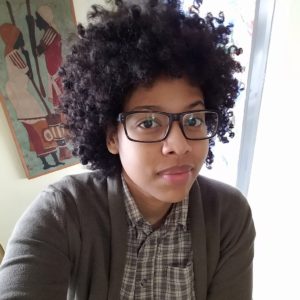
Livewire #1 comes out on December 19th (it’s FOC today, retailer types) and will have a special black light glass cover that sounds wild.
Ayala is an alumni of the DC Talent Development Workshop; other credits include Batgirl, Batman Beyond, Dark Horse Comics’ The Secret Loves of Geeks, Image Comics’ Bitch Planet and Twisted Romance, and the award-winning anthology Mine!: A celebration of liberty and freedom for all benefitting Planned Parenthood. Their mini series The Wilds, a post apocalyptic SF tale with an LCGBTQ focus, came out from Black Mask earlier this year, and Submerged, about an adventure in a flooded NYC subway, came out from Vault. As you can see from the following, their experience living in NYC is a big part of their work, and indeed, as we chatted, Ayaya was negotiating the busy streets of New York.
THE BEAT: Vita, we’ve wanted to talk to you here at the Beat for a while. I want to talk about Livewire but as your first ongoing, I want to set the road map a little bit. It seems like you have suddenly burst onto the scene, but where were you before this?
AYALA: was first published by DC in their 2016 holiday issue. I’ve done some stuff for D.C. I have two creator owned series one from Black Mask, one from Vault, both of which came out this year. I’ve also done some work for Marvel. So it may seem like I have suddenly appeared, but I’ve been I’ve been working hard behind the scenes for a while. I’ve been at Black Mask since 2015, and worked in comics retail for 10 years before that.
THE BEAT: Vita, I didn’t realize that you were a clerk at Forbidden Planet for 10 years. Because if there was ever a breaking in for writing comics it would be being a retailer.
AYALA: Yeah, I got that a fun and unique perspective on what people think on the ground.
THE BEAT: You were part of the DC writer’s workshop though, correct? Did you know Scott Snyder (who spearheaded the project) before that?
AYALA: I’d met him a couple of times and we’d had some pretty friendly conversations. I actually met him when American Vampire first came out, and we’ve had good interactions since then, but that was the first time we got to work closely together which was awesome. I credit the writer’s workshop with learning a lot of stuff, both the editors but also my peers in it, because they were awesome.
THE BEAT: Everyone always says it’s very hard to break in as a writer, and it’s a long road, much harder than for artists. It’s no wonder that it took a few years.
AYALA: Right! Let me know when I’ve when broken in!
THE BEAT: This is your first ongoing, correct?
AYALA: Yes and it is super, super exciting, and a great project to have as my first ongoing.
THE BEAT: So how did you how did you get involved with Livewire and Valiant?
AYALA: I knew Joe Illidge from before – we’d known each other for a couple of years. We’ve had lots and lots of conversations about character and story and all that kind of fun stuff. And when he moved over he wanted to hear my take on Livewire. He said “There is no guarantee that you’re going to be working on anything but I’d really love to hear what you have to say.” I sent in a sketch and I guess he showed it around the office and everybody seemed to dig it. They gave me a chance.
THE BEAT: Were you a Valiant fan before? Were you familiar with her universe?
AYALA: Absolutely [from my retail days] before I was lucky enough to get into the industry. And Secret Weapons, which also featured Livewire, was one of my favorite books to come out in the last five years. I love, love, love that book and I have a real affinity for a lot of their characters. When I was younger, before the reboot, I would find copies of the old stuff lying around and read it on breaks.
THE BEAT: What was about Livewire specifically that drew you to her? And what were your first thoughts about her?
AYALA: You know it’s funny because you’d be standing in Forbidden Planet and talking, as comic book clerks have done for time immemorial, and saying, when is she getting her own series? When this is happening? That was legitimate shoptalk for years and when Secret Weapons came out we thought, all right! But it was more of a team book. So [a solo book] was long overdue in my eyes. And the fact that I get to be part of [making her own title] is astonishing to me.
THE BEAT: I’ve had a chance to read the first issue and I know this is picking up a lot of threads from the previous series – can you talk a little just where she’s at in issue #1 and what’s going on with her? It’s definitely a not a triumphant hero’s welcome.
AYALA: This picks up directly after the events in Harbinger Wars which is the big event that happened universe wide, in which Livewire is Public Enemy #1, Livewire is a psiot which means that she has extranormal abilities, and the government was hunting for psiots across the board but very specifically she was concerned about the Secret Weapons kids, who are her adopted family. She shut down the entire country to make the government stop, and everything that was technological got shut down. Then she had to go toe to toe with the American government. And so #1 takes place directly after that where there are some pretty massive repercussions from her taking an action like that without really thinking it through. She has to learn how to deal with that, just to acknowledge the things that went wrong and then figure out how to move forward and be the hero that she thought she was.
THE BEAT: Yeah there are a lot of echoes of the real world here. Were you thinking about how this reflects some of the weird stuff that’s going on in our own earth?
AYALA: Absolutely. It’s funny because, again, I’m a New Yorker. I’ve been in this city for quite some time now. I’m 33 and I remember the blackout of 2003. And I remember a bunch of disasters that have happened.
One of the things that really struck me about those things was how one small thing could affect everything else that we do. For example during Hurricane Sandy because of the concern of flooding, hospitals were evacuated because Bellevue Hospital is right on the water. So a lot of patients who weren’t in critical condition, were just let go. And that’s just one small thing. So her shutting off the country has implications that are huge, huge issues that affect everybody. I remember during Sandy, my mom lives on the 11th floor of a building with an elevator and she didn’t have water. So every day we had to go down with jugs and get water. All those things.
THE BEAT: Oh yeah I hear you. I remember those times. Bellevue’s basement got flooded and they had the emergency generators there. It was a disaster in every sense of the word.
AYALA: In the psychiatric ward, people commit themselves voluntarily if they think they need help. All those people were let go. People in crisis. It was rough and that kind of swirled in my mind whenever I’m writing an issue because she really was trying to help stop this massacre of her people but inadvertently caused a lot of chaos and a lot of suffering. But she is a hero at heart.
THE BEAT: I think that really comes across in the first issue. To be honest, I appreciated seeing that she has this inner struggle about what she’s been doing, even though she’s committed to being a hero. But she sees the other side.
AYALA: Yes. I mean, it’s easy to scapegoat her at this point too. And that’s something you have to deal with. How do you reconcile doing what you have to do to survive but also hurting other people when one of the most important characteristics that you have is your empathy. I think that Livewire is one of the most empathetic characters in the Valiant universe. So how do you mentally make that OK? That’s what this is about.
THE BEAT: You seem to be getting in on writing superheroes with gusto, but your other books weren’t quite as superhero oriented. Where do you feel your comfort zone is as a writer?
AYALA: I love writing genre books, I like superhero stuff a lot. SF Noir is my favorite. If I can find a way to blend them, I do. But the writer’s workshop took us behind the scenes of what it takes to do something big and bombastic like a superhero book and it was very much an education. From there I was left to my own devices. I read a lot of science fiction and noir or sometimes fantasy. I’m very comfortable in the realm of make-believe.
THE BEAT: There are so many calls for representation, and there’s so much evidence about how important it is. I think it’s very important that Livewire is a woman of color superhero and she’s starring in her own book. Was this also something that was important to you in telling this story?
AYALA: Absolutely. I think back to the things that I liked as a kid and that drew me to comics. And it was seeing little bits of myself in these characters. And as you said we all know that representation is important. It’s not a hash tag. It’s true. You know the stories about people seeing Nichelle Nichols being inspired to run for office or become astronauts. They saw black people in space and thought “Wait, I can do that. That’s real.” I don’t know how much you can become a superhero after reading this book, but one of the things that’s important is to show that black people and black women especially, who are notoriously underrepresented, can be intelligent, complex, nuanced people who struggle with the same things everyone else does. I know that we know that intellectually but seeing it in practice helps drive that home in a way that is important and promotes empathy. Livewire is the smartest person in that universe and that’s amazing.
THE BEAT: Yeah I was very I was really struck by that fact that. We both know there are so many clichés or tropes and this is so far from those. It’s really refreshing and cool to see a character who’s breaking a lot those stereotypes.
AYALA: Yeah she’s one of my favorites.. And it’s fun too, because I feel like we get to do whatever we want. Like that’s not literally true, but I have [so many options.] One of the great things about working with Valiant is that the story and the characters come first. That’s the mandate. You need to make a tight story and portray this character authentically. That’s so wonderful.
THE BEAT: She does have a very powerful skillset. How do you approach showing her powers, especially after this great disaster?
AYALA: I do think about that. So she had a bad day and flipped out and turned off the country. At the time it was absolutely a conscious move, but now knows that she has that kind of power. Now she has to figure out how to be delicate and how to pull back. We’ve seen with Superman how much control he must have, and for her it’s the same. It doesn’t matter what kind of day you’re having or who you’re facing she has to be aware of how much power she wields and how to do it in a way that is beneficial. And that is the challenge.
THE BEAT: Have you seen the glass cover yet?
AYALA: Oh my god yes! And it glows in black light!
THE BEAT: Whoa! I need to get one. Just going back to your retailing days, what is the big lesson you ‘ve carried over from that?
AYALA: I’ve learned intimately why sometimes some things are late, and I really have a lot more sympathy now! Boy, is that hard work. I already knew was hard work but like, my goodness. I also learned to be a little kinder, even in my own mind, when a larger book is dropping behind. You really don’t know what’s going on sometimes.
THE BEAT: Also you mentioned your learned about bombast from the DC Writers’ Workshop. I guess “larger than life” is the way to put it. Are there any secrets you can share with us about these ancient teaching?
AYALA: I’m going to give away some secret sauce that Joe Illidge actually taught me. I had this lesson also with the workshop but it wasn’t worded in the same way. The way Joe put it is that the cover and the first three pages are what is going to sell the book. You want something at the end of the first page that makes people say “What???” Why do they have to turn to the second page. You want them to be sold. And then you want something absolutely bonkers on that third page because that is going to get people to flip. Covers are important, but what makes you open the book. Then you have to hook them enough for them to turn the page. And if you can get them to that one turn, that payoff on page 3 better be great.


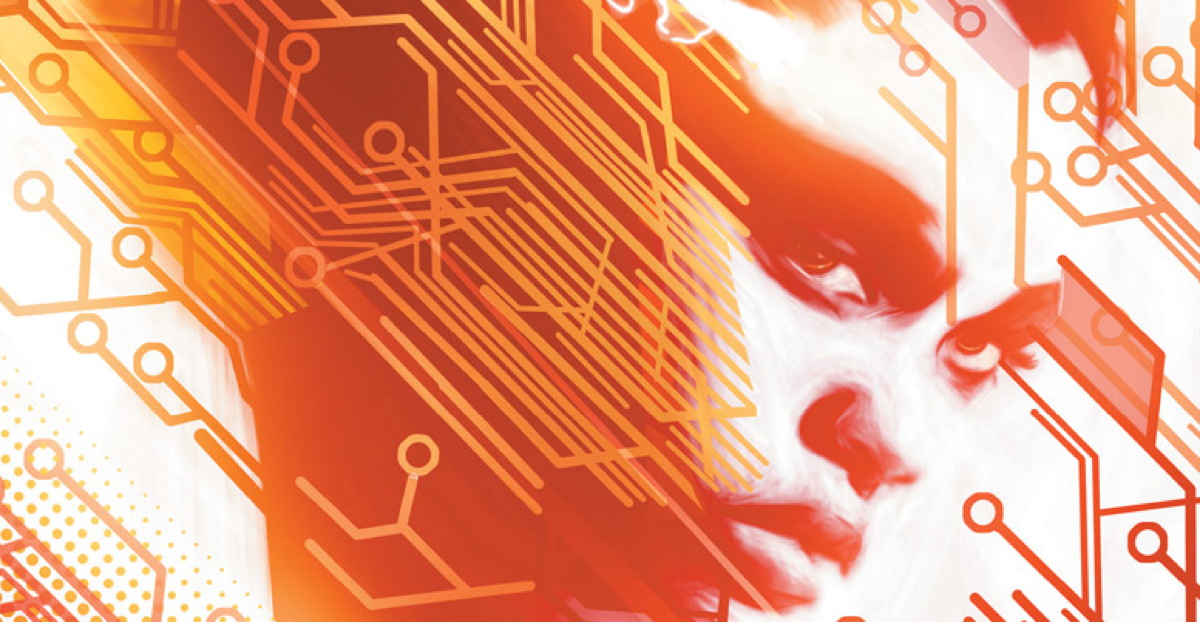
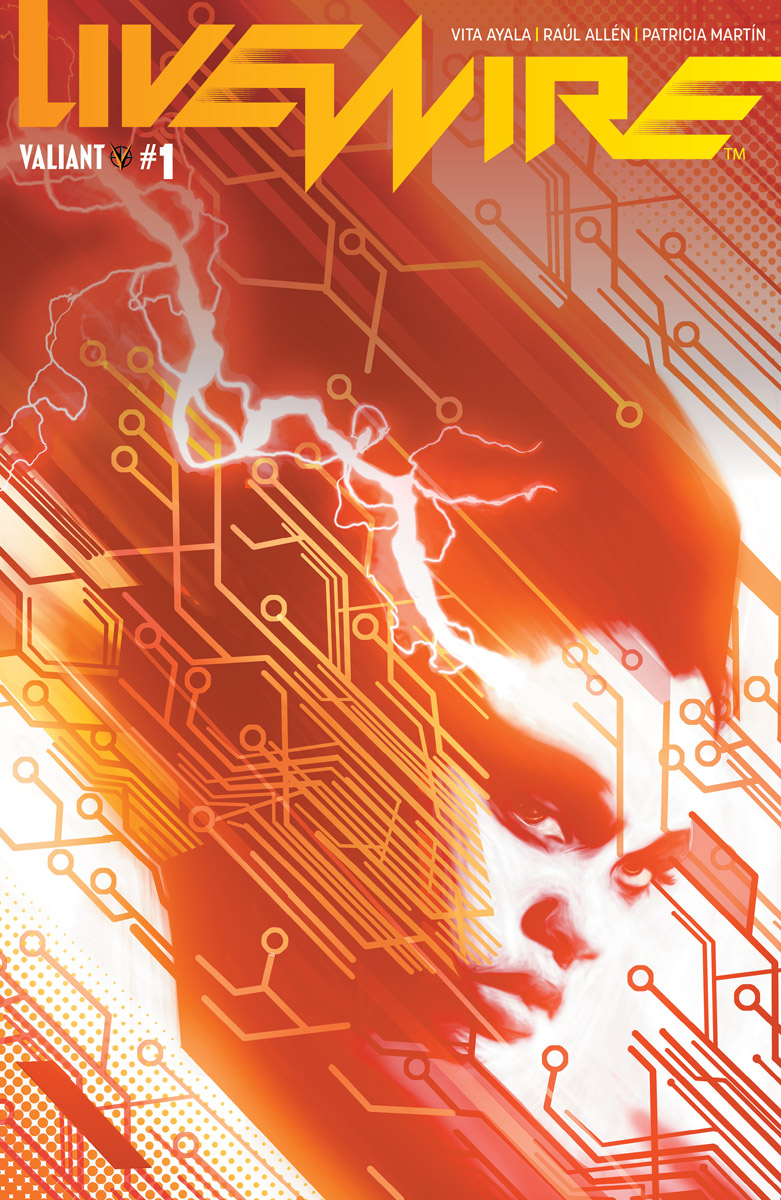
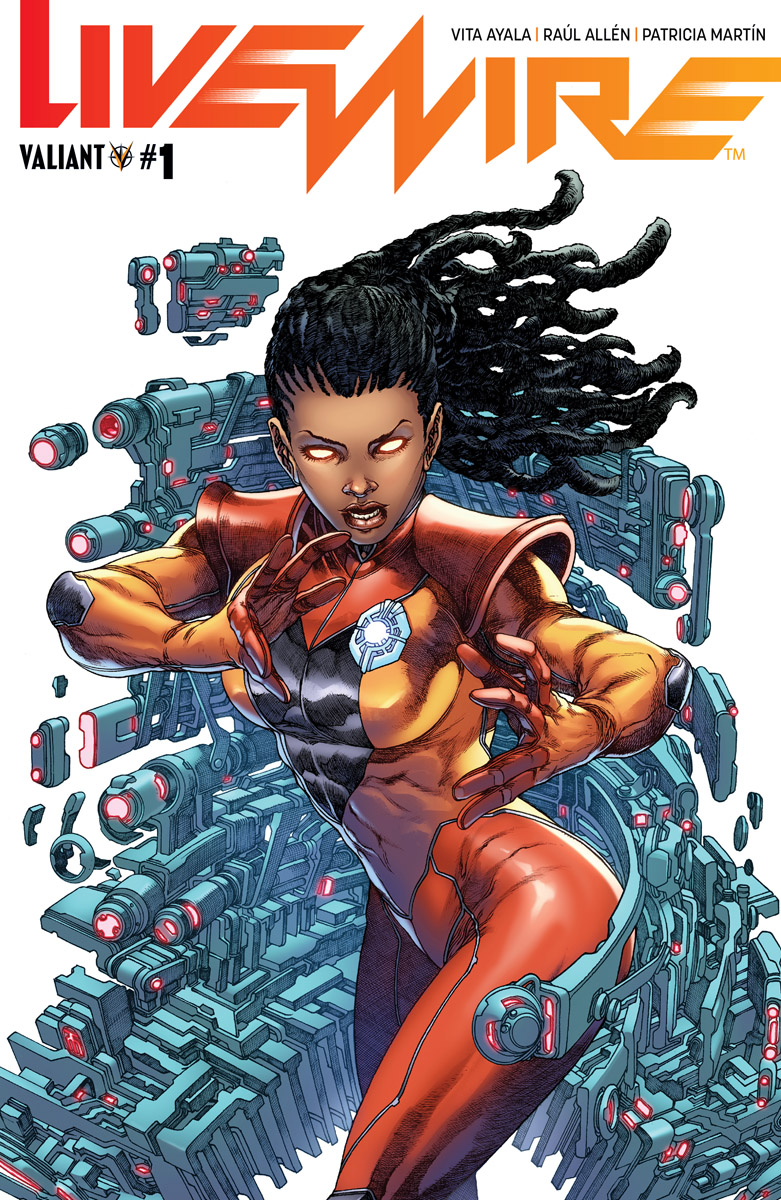
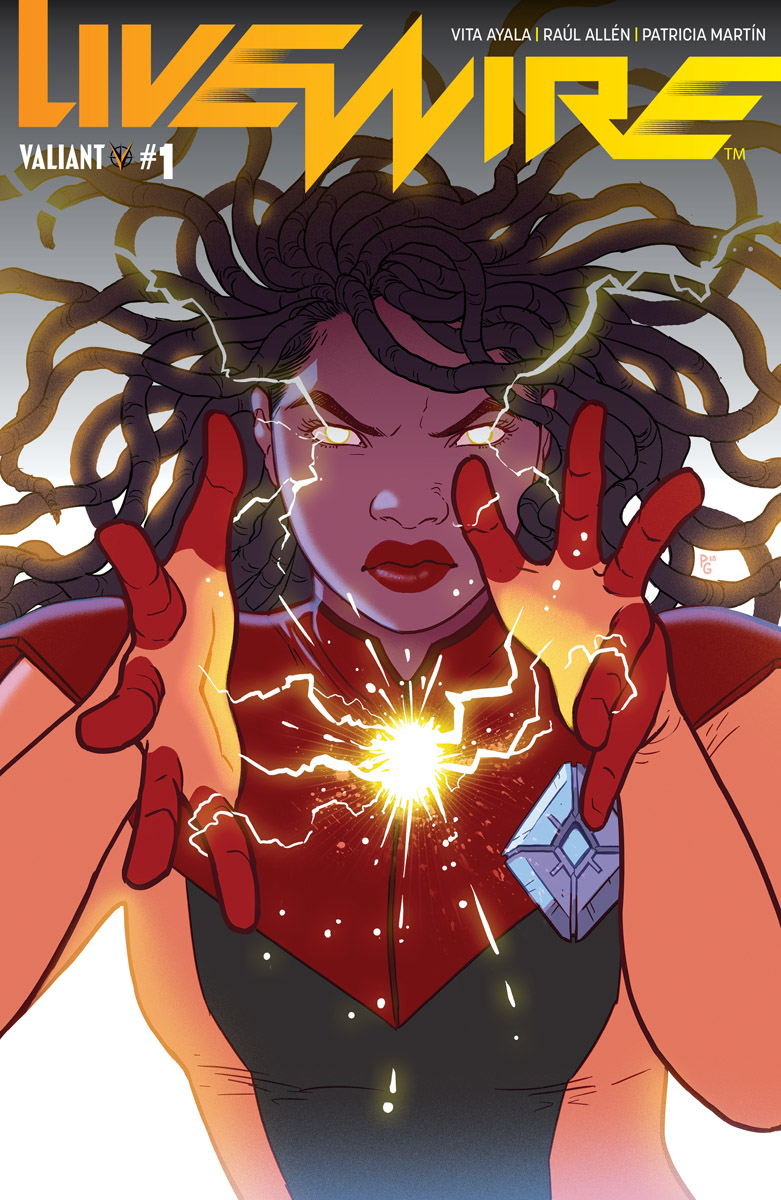
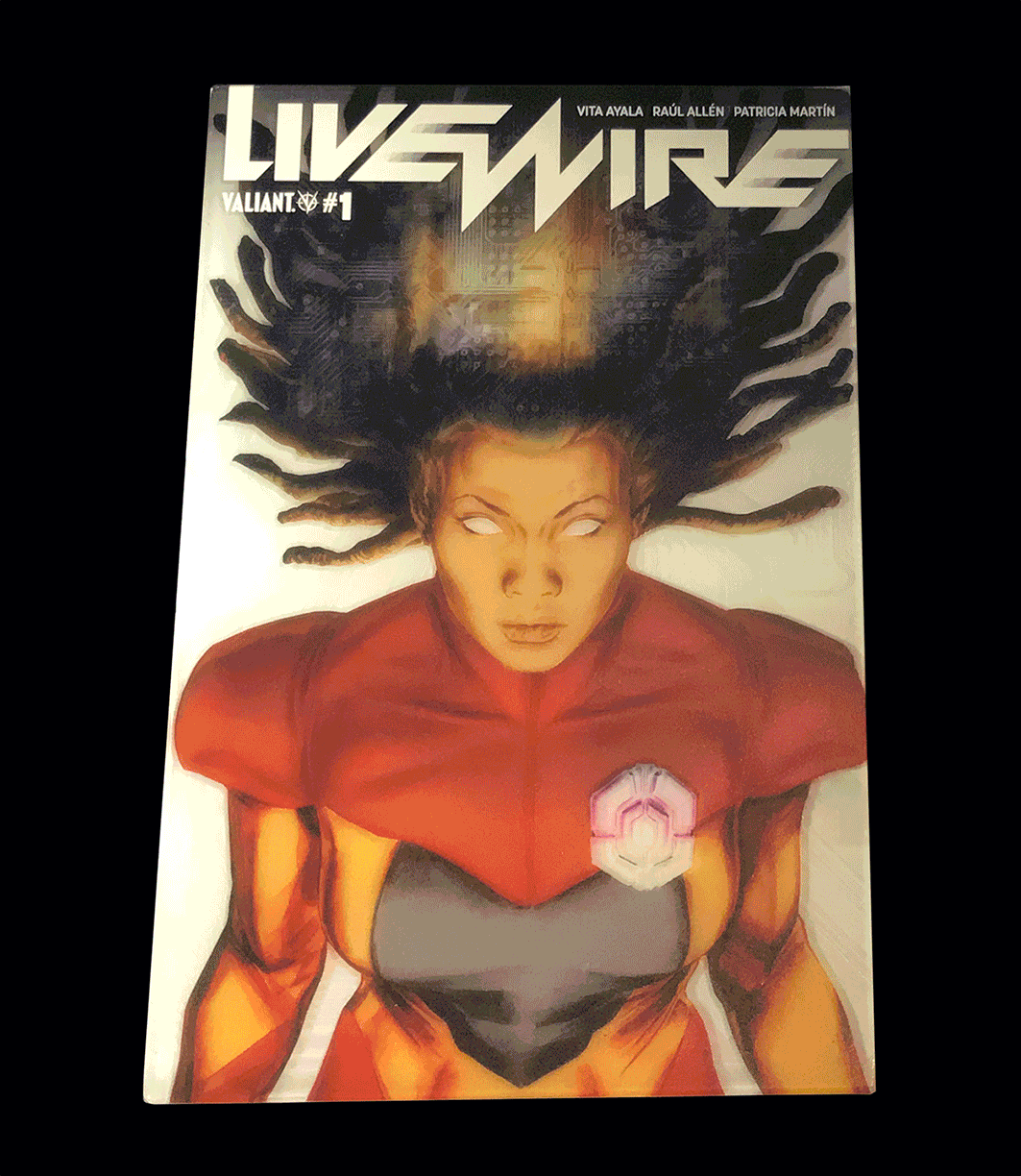
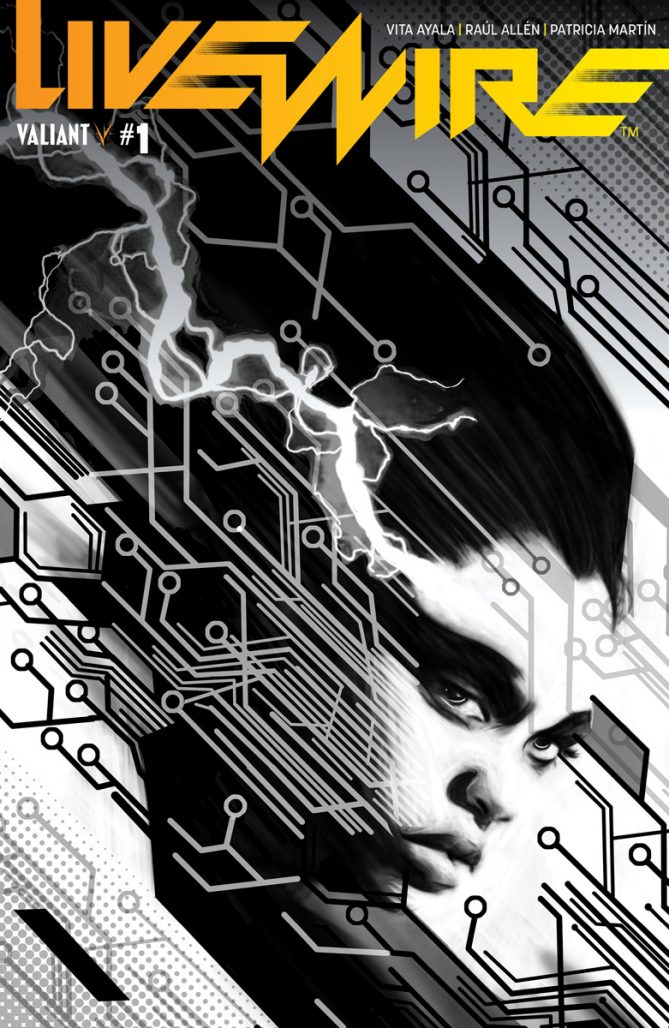
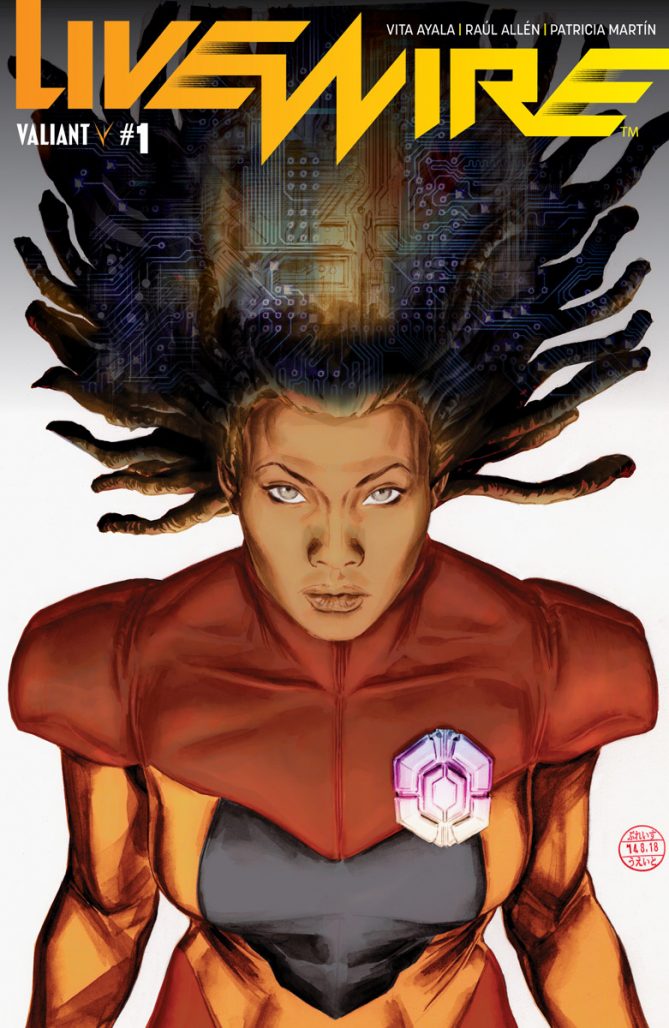
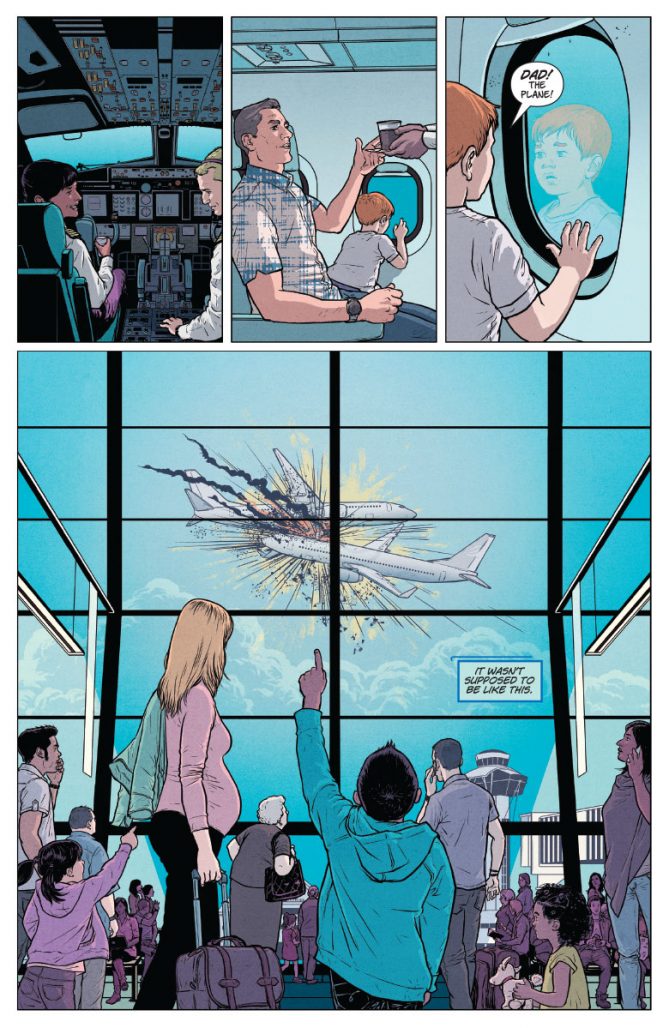
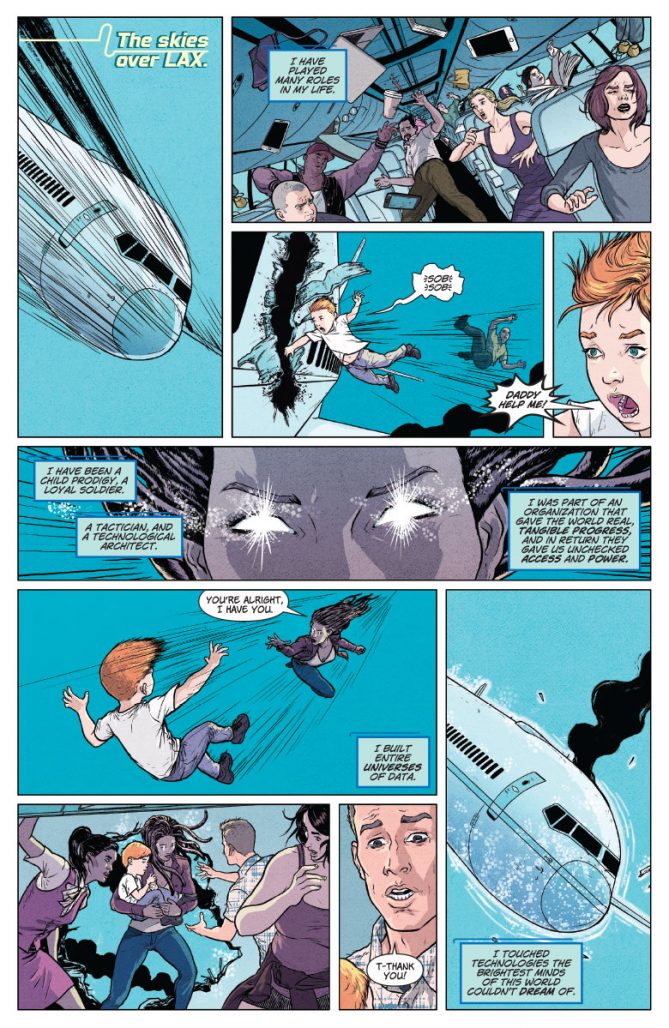
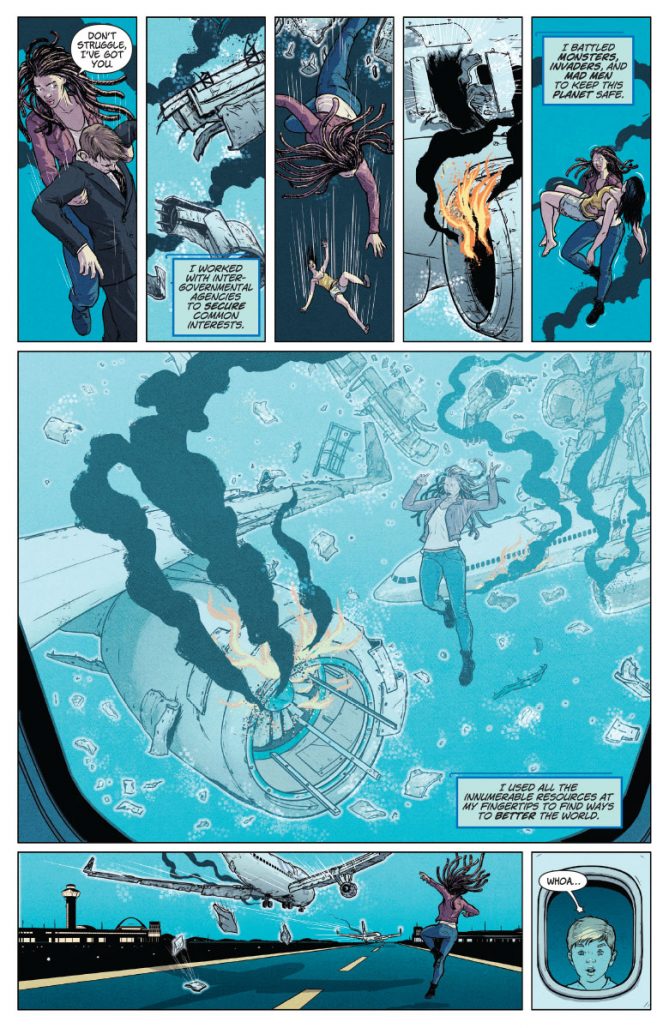
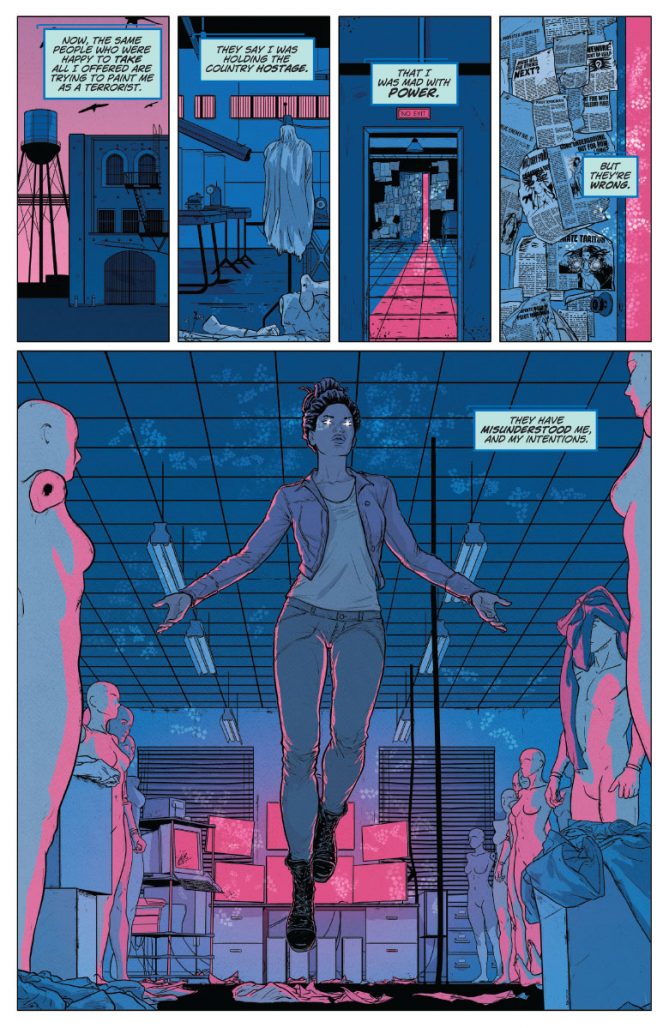
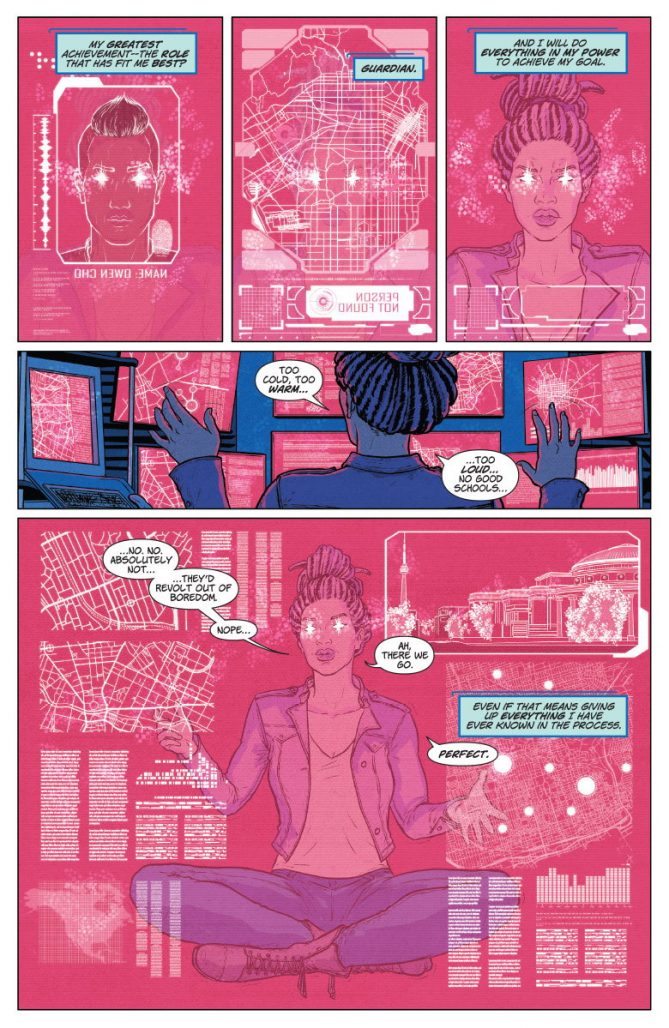
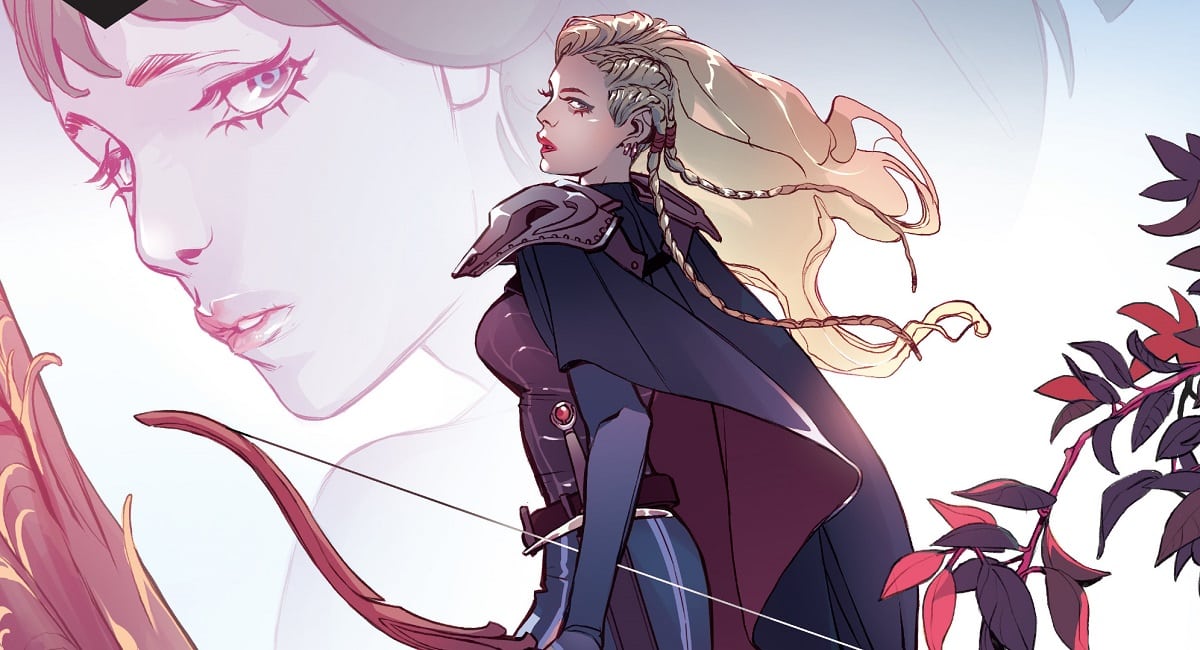
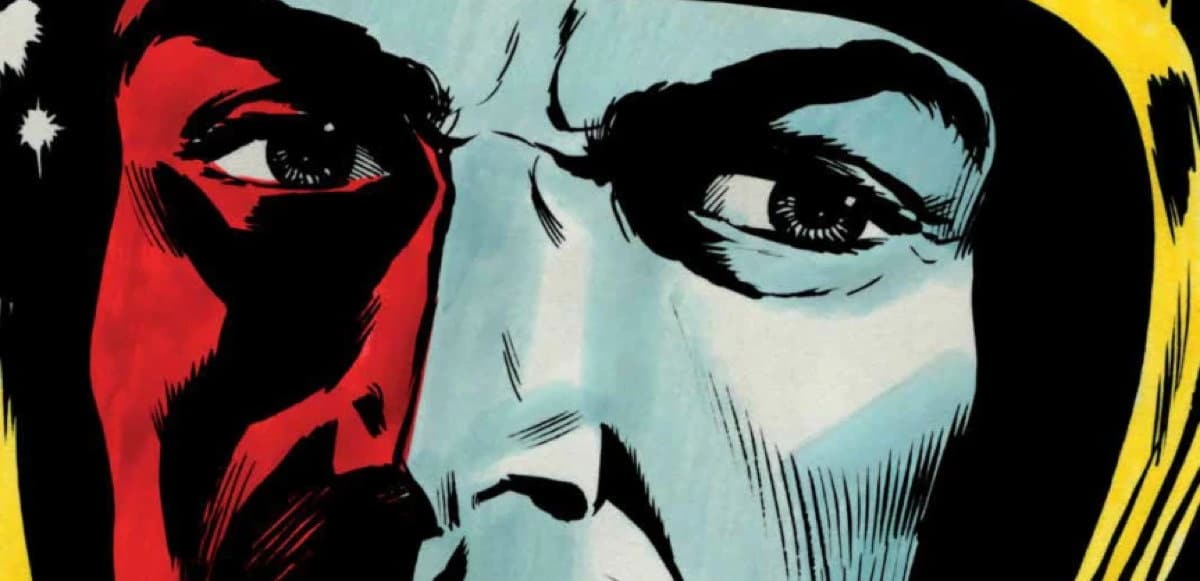
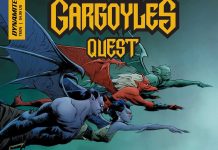
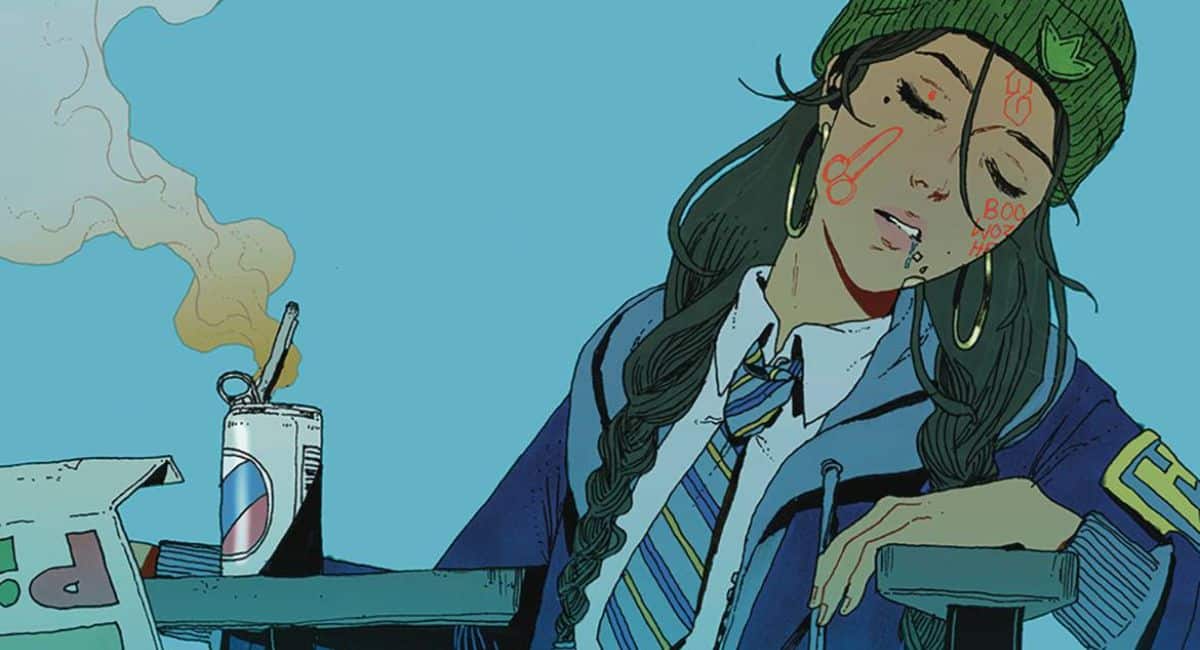

Vita is writing this????? Oh shucky shucky!! I’m back to Valiant!!!!
Appreciate being informed here.
Comments are closed.